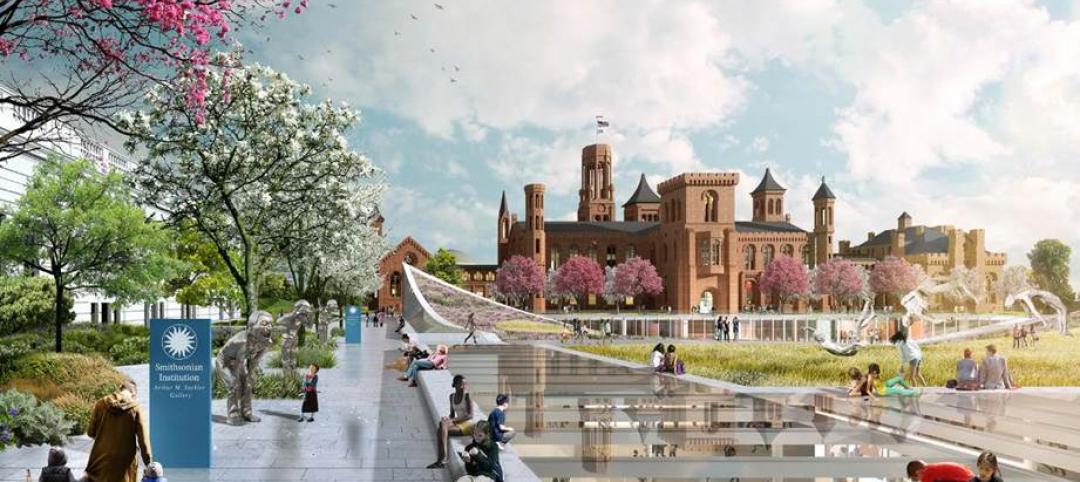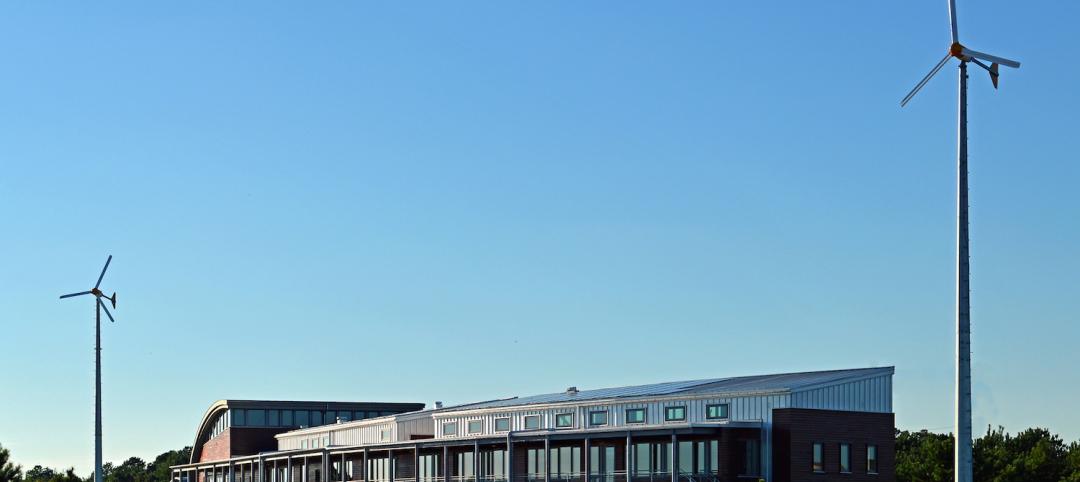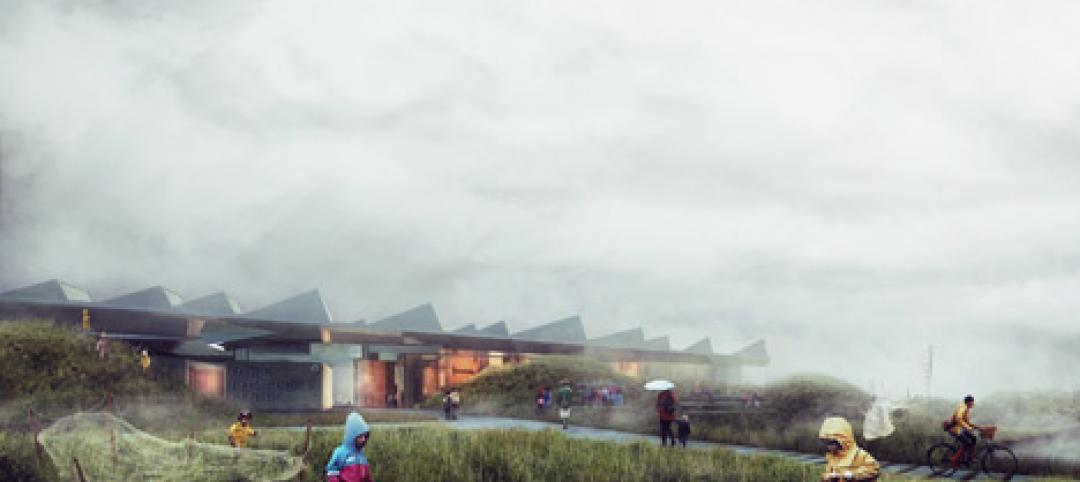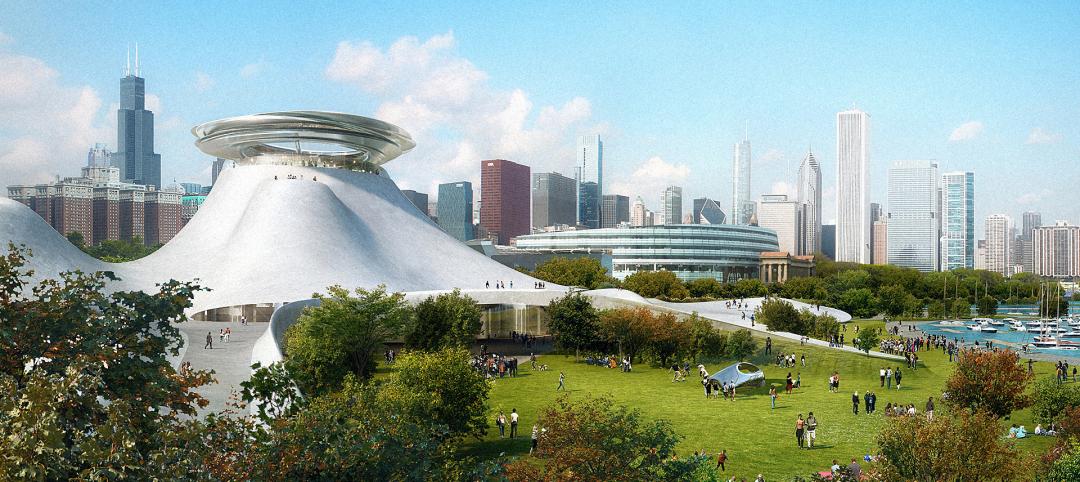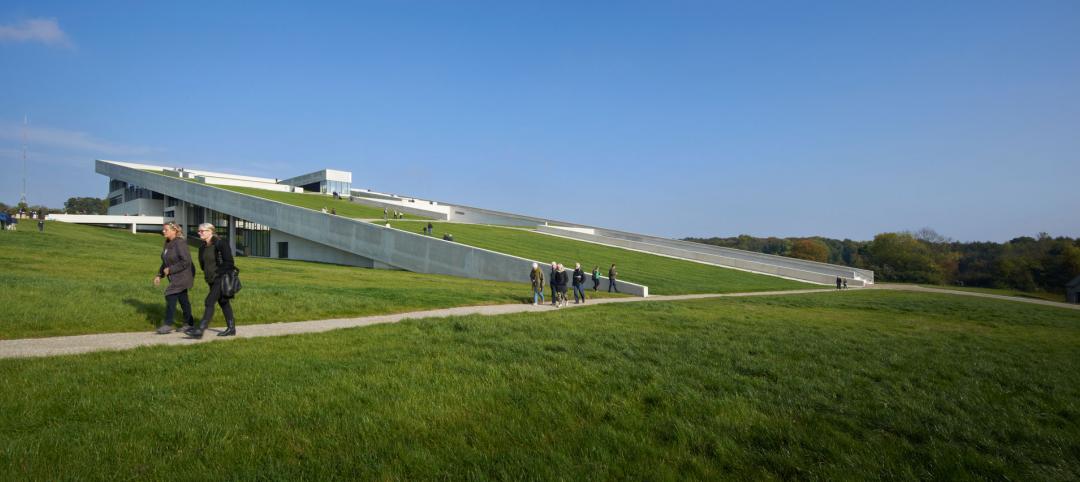For the design of the newly completed Sorol Art Museum in Gangneung, South Korea, Meier Partners drew from Korean Confucianism to achieve a simplicity of form, material, and composition and a harmonious relationship with nature. The museum is scheduled to open on February 14. It is the firm’s first completed project since restructuring as Meier Partners.
Owned by Gyo-Dong Park Holdings, the 34,678-sf museum is located on a public park’s hilltop in the city center, with a sea and mountain backdrop. The park and its pedestrian paths connect with the art center, and the building’s ground floor is situated on a high plateau with panoramic views. While the galleries provide controlled natural light, visitors can enjoy views of the park throughout the building’s circulation spaces.
The three-floor museum is configured around a central courtyard, a feature inspired by traditional Korean architecture. The building is organized into three main sections: the north wing, which is a large, cantilevered pavilion; a cube containing the gallery and offices; and a transparent pavilion housing the main entrance, lobby, and café. Circulation follows a T-shape that provides opportunities for interaction with the outdoor exhibits, gardens, and reflecting pool.
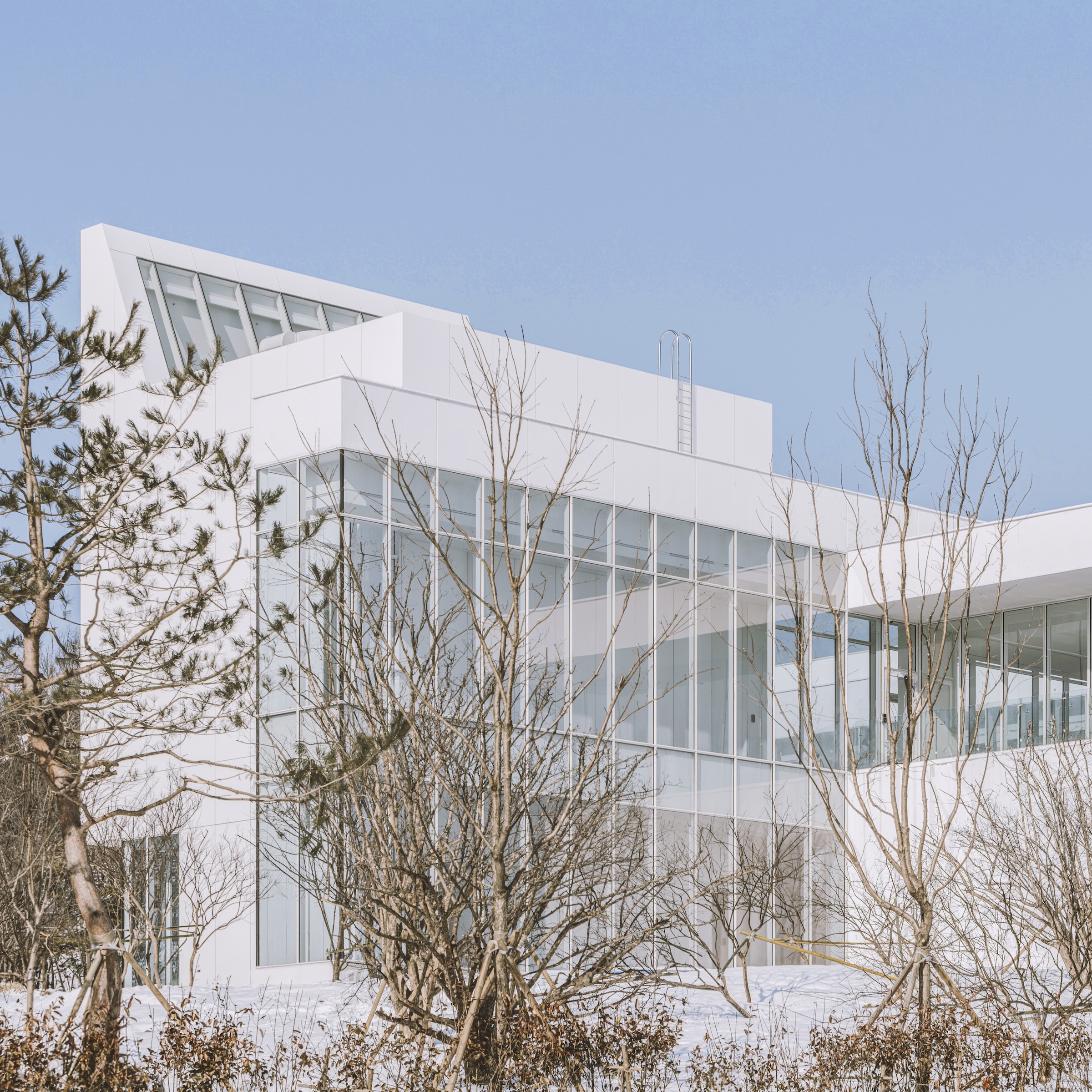
“The concept behind the Sorol Museum was to create a serene and simple yet memorable space that presents a harmonious blend of art, architecture, and nature,” Sharon Oh, project architect and manager, said in a statement.
The exhibition spaces are contained in a tall structure topped with a skylight that has opaque-translucent glass for diffused lighting. Modestly sized windows have been strategically placed to provide controlled natural light and offer views of the park while still maximizing wall space for exhibits. In each gallery, curators can control the amount of natural and artificial light to meet the requirements of the art.
The building’s main materials comprise white exposed concrete, aluminum curtain wall, aluminum composite panel, glass, and stone. The construction manager was Asia General Construction.
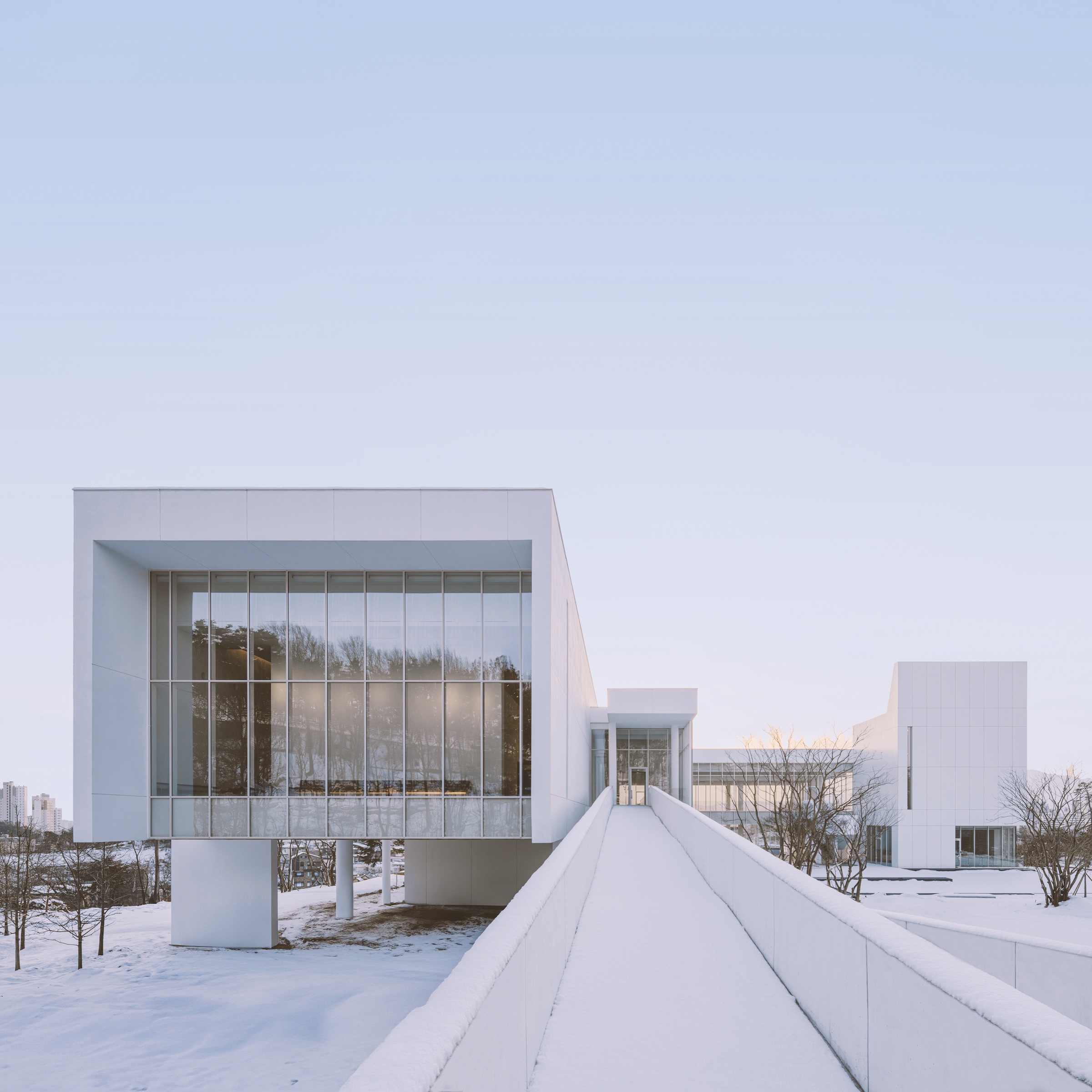
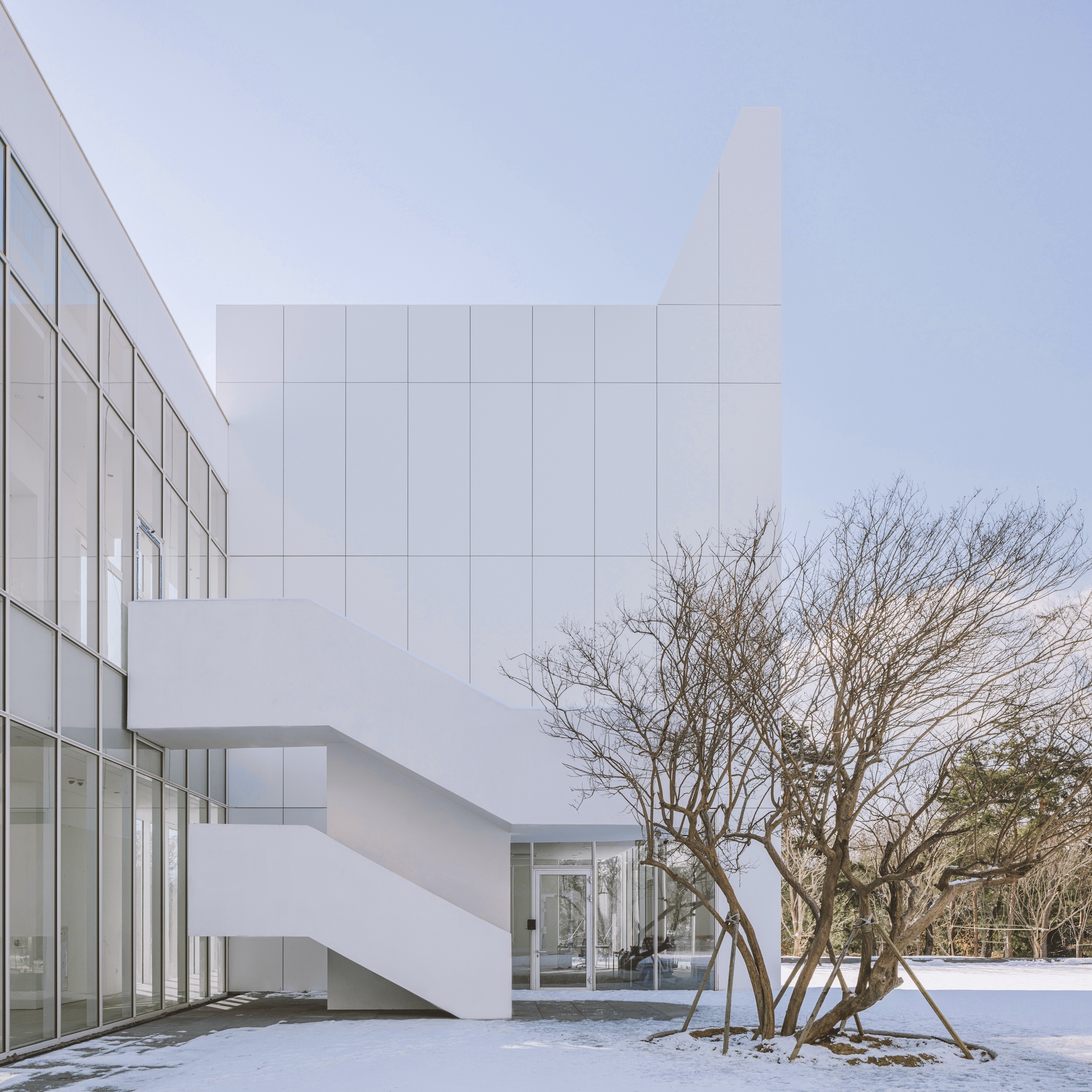
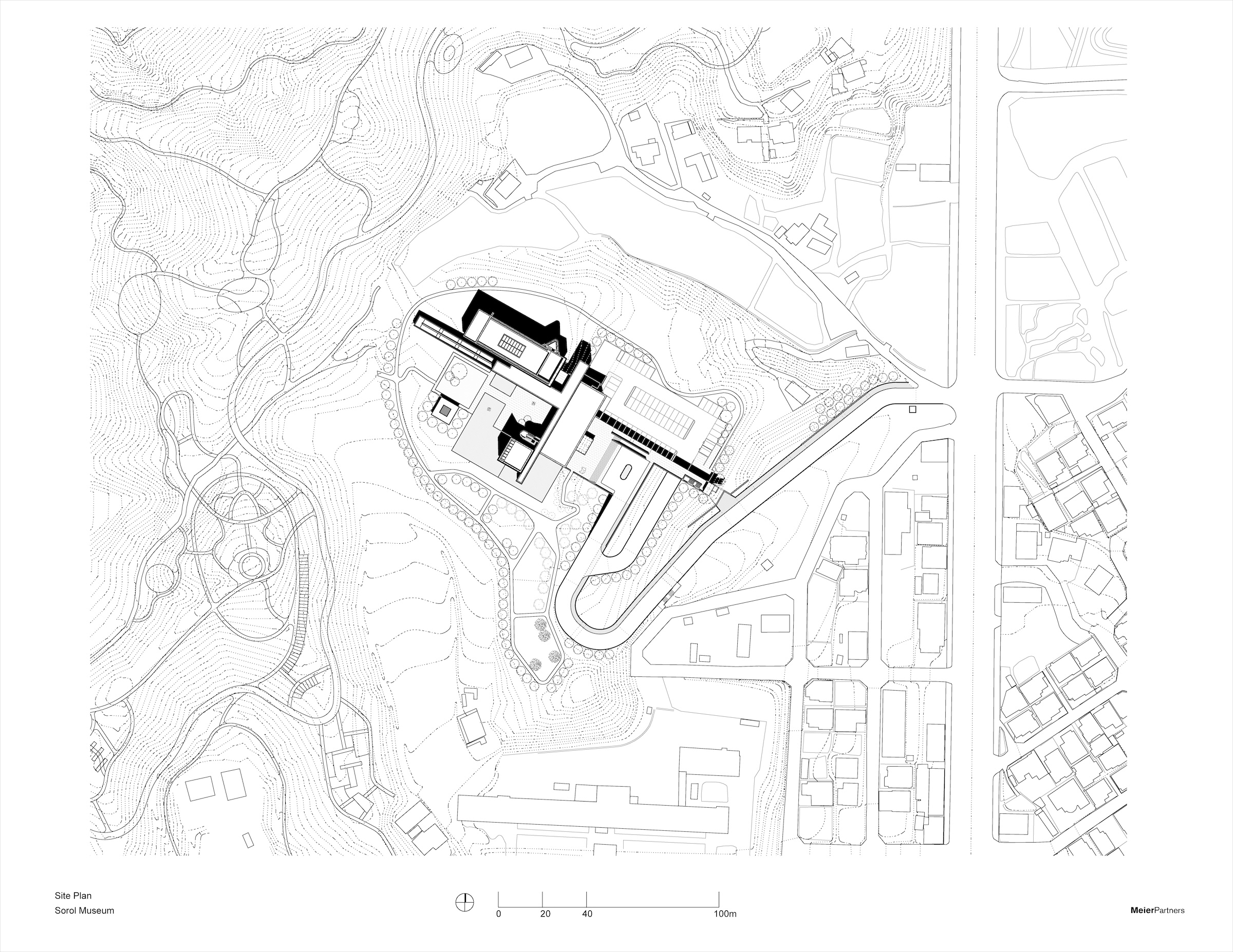
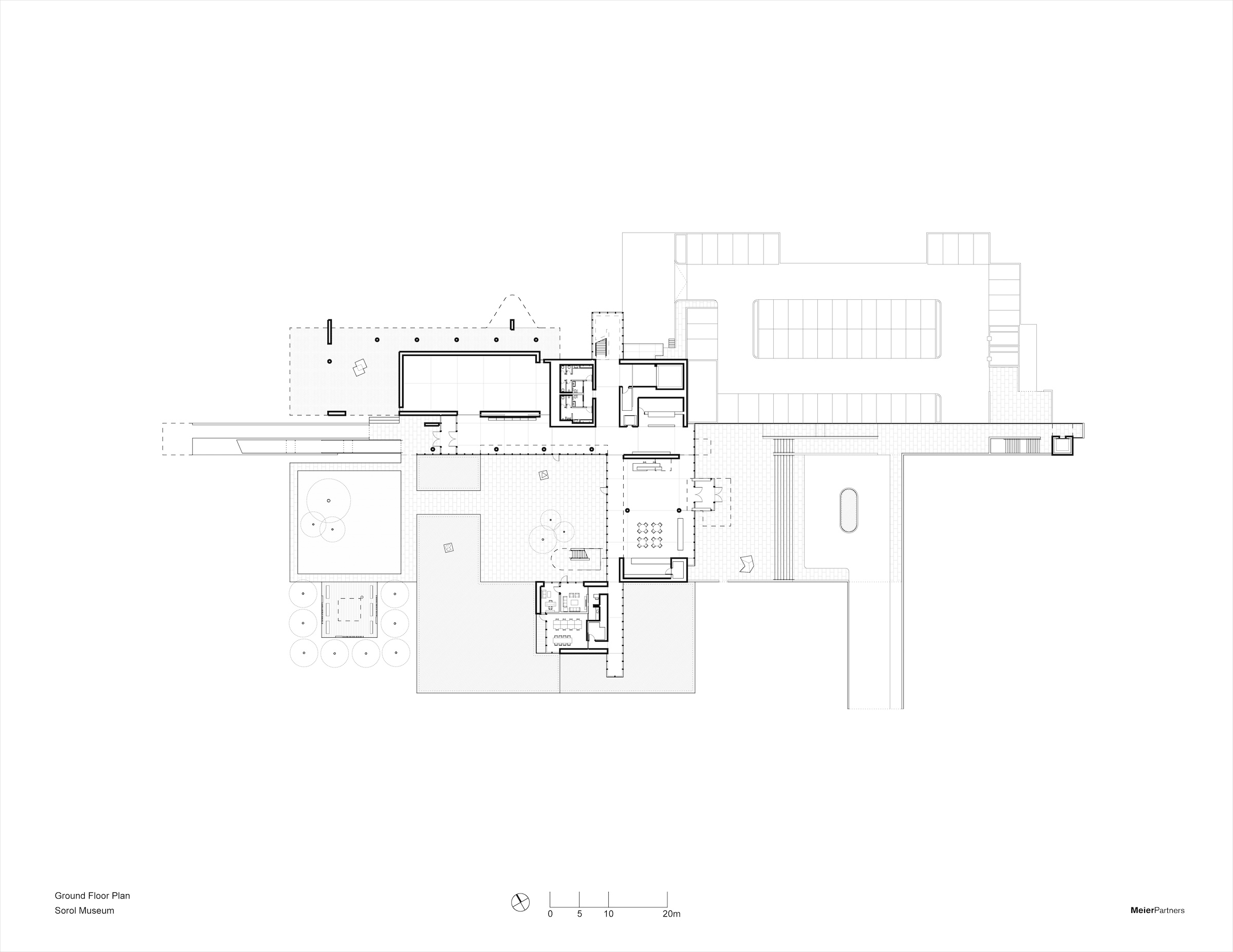
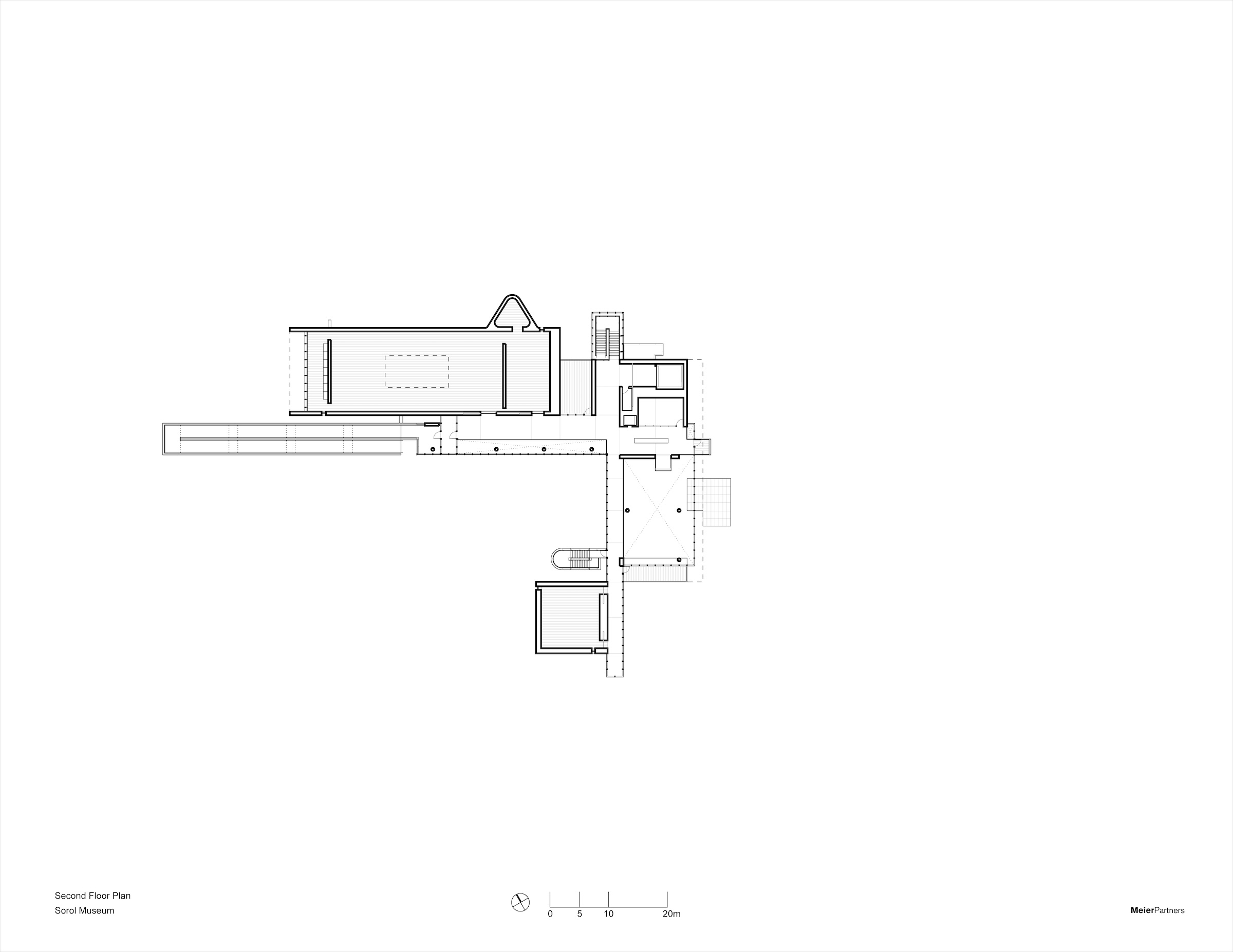
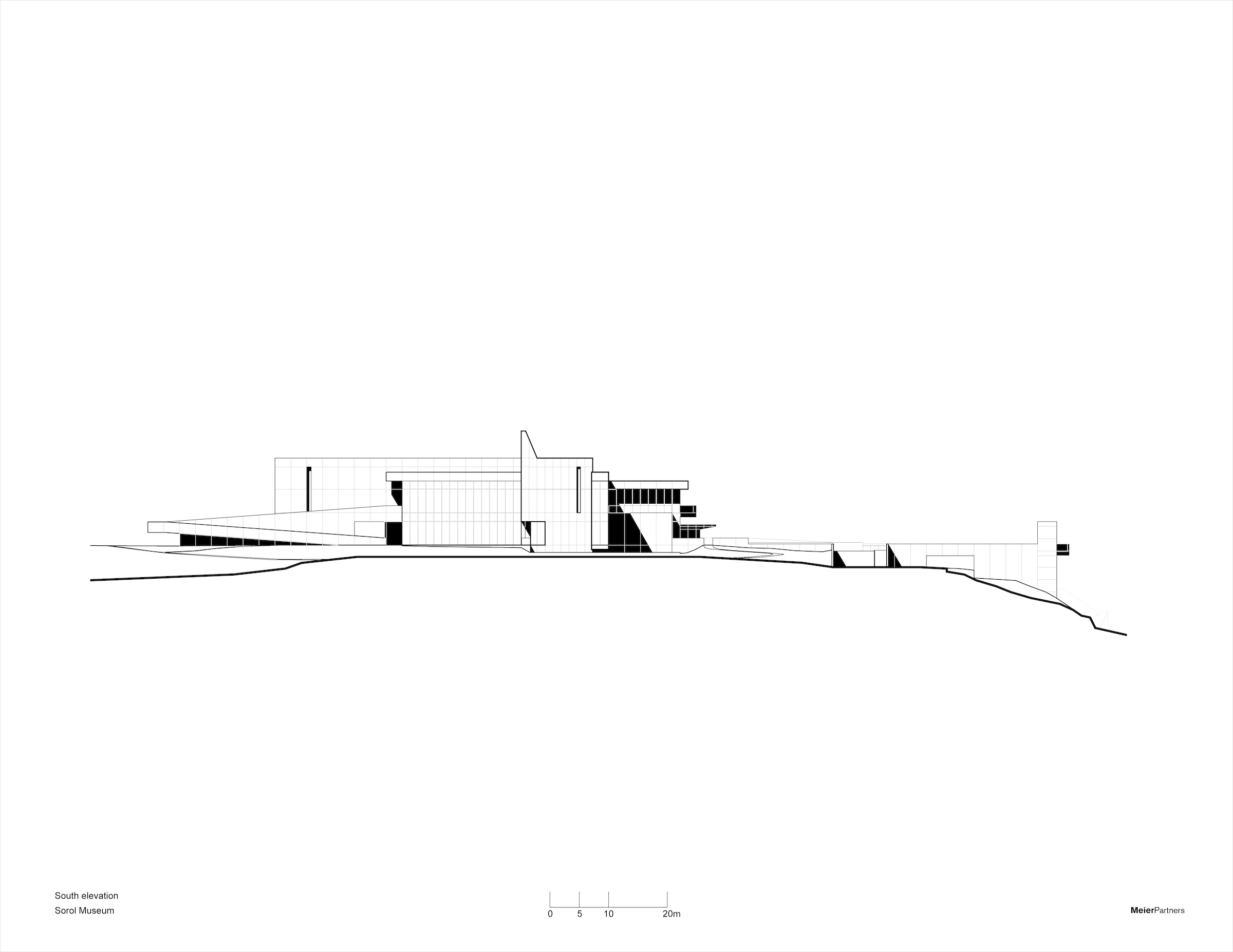
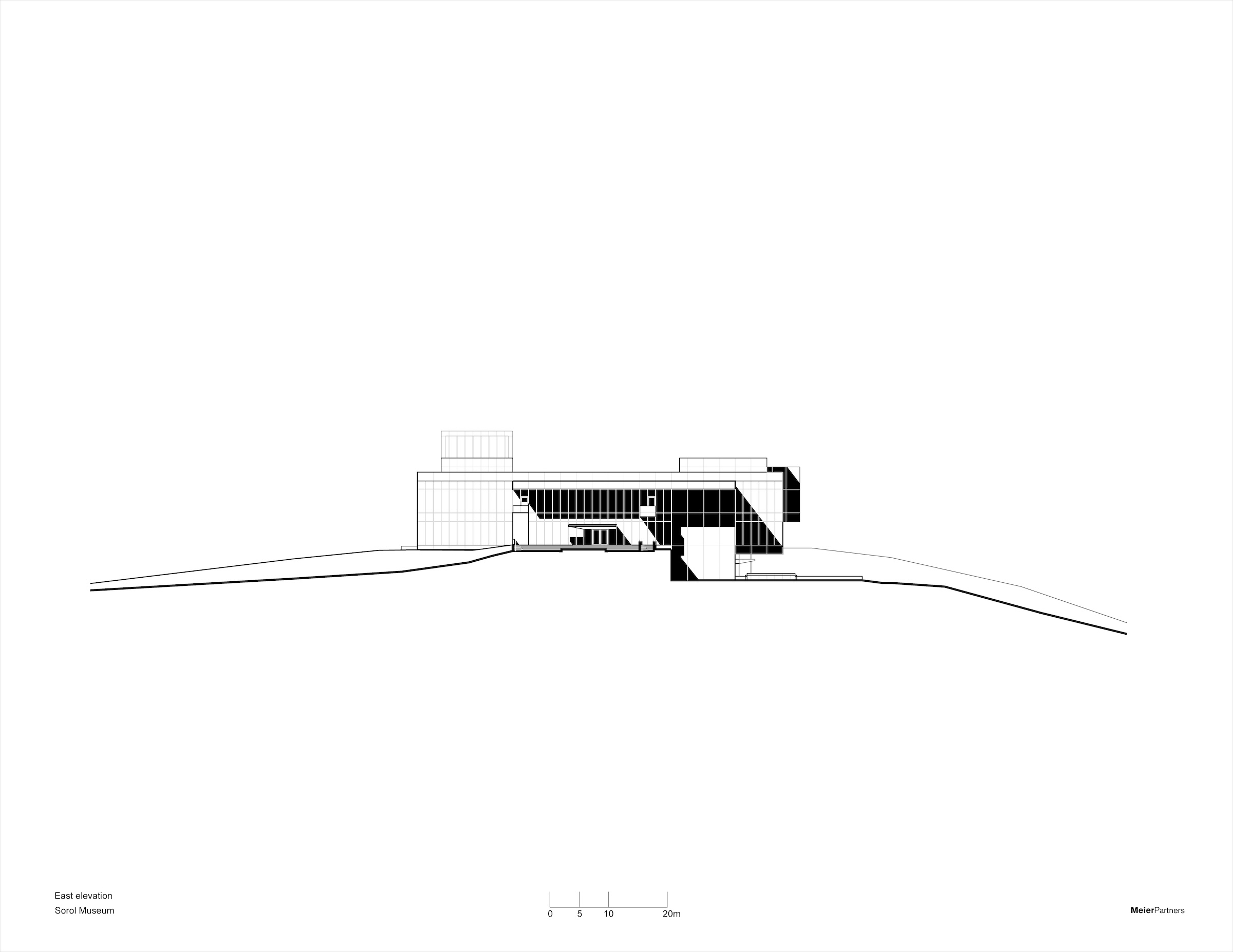
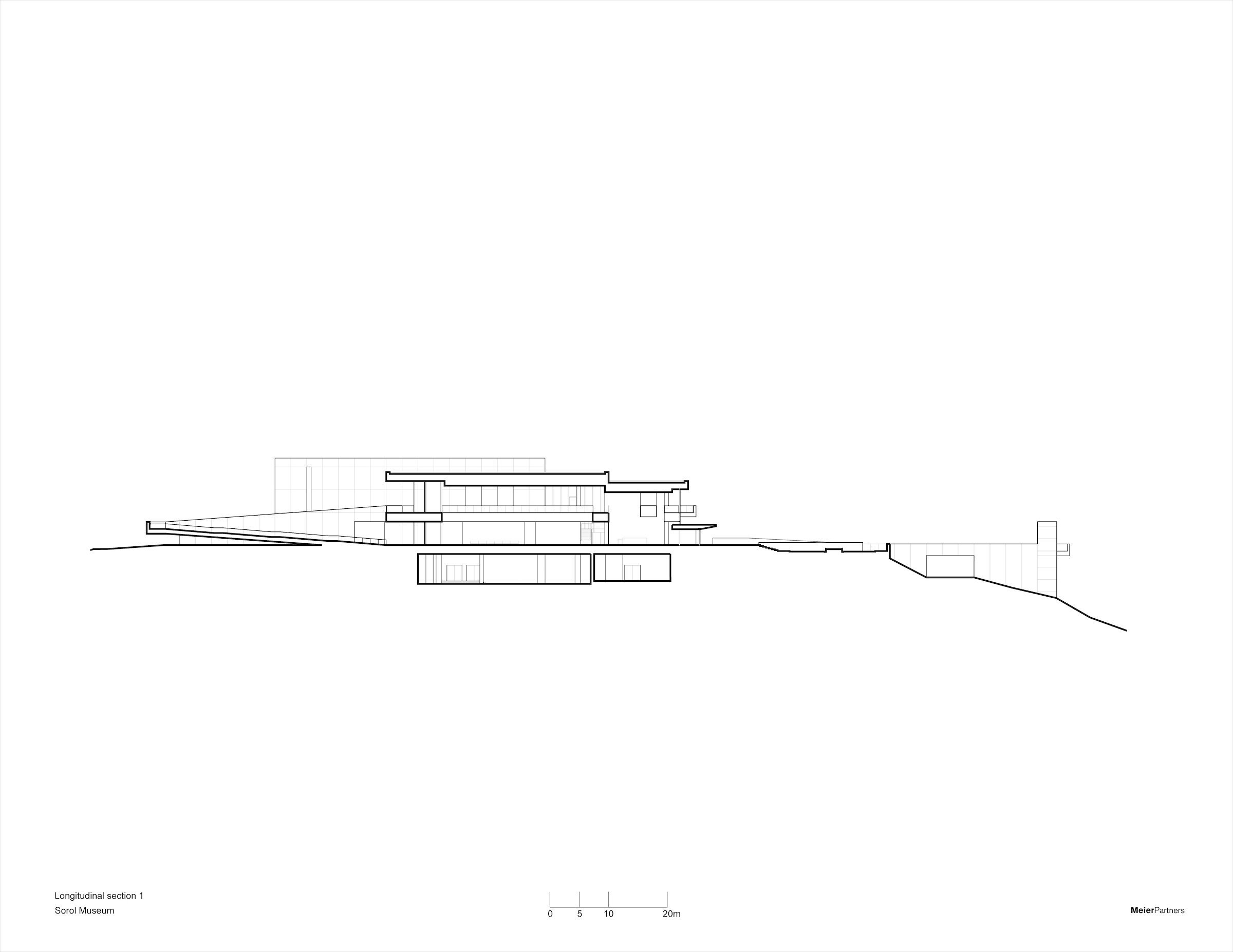
Related Stories
| Nov 14, 2014
Bjarke Ingels unveils master plan for Smithsonian's south mall campus
The centerpiece of the proposed plan is the revitalization of the iconic Smithsonian castle.
| Nov 12, 2014
Chesapeake Bay Foundation completes uber-green Brock Environmental Center, targets Living Building certification
More than a decade after opening its groundbreaking Philip Merrill Environmental Center, the group is back at it with a structure designed to be net-zero water, net-zero energy, and net-zero waste.
| Nov 7, 2014
NORD Architects releases renderings for Marine Education Center in Sweden
The education center will be set in a landscape that includes small ponds and plantings intended to mimic an assortment of marine ecologies and create “an engaging learning landscape” for visitors to experience nature hands-on.
| Nov 5, 2014
The architects behind George Lucas' planned Chicago museum unveil 'futuristic pyramid'
Preliminary designs for the $300 million George Lucas Museum of Narrative Art have been unveiled, and it looks like a futuristic, curvy pyramid.
| Nov 3, 2014
IIT names winners of inaugural Mies Crown Hall Americas Prize
Herzog & de Meuron's iconic 1111 Lincoln Road parking garage in Miami Beach, Fla., is one of two winners of the $50,000 architectural prize.
| Oct 29, 2014
Diller Scofidio + Renfro selected to design Olympic Museum in Colorado Springs
The museum is slated for an early 2018 completion, and will include a hall of fame, theater, retail space, and a 20,000-sf hall that will showcase the history of the Olympics and Paralympics.
| Oct 23, 2014
Prehistory museum's slanted roof mimics archaeological excavation [slideshow]
Mimicking the unearthing of archaeological sites, Henning Larsen Architects' recently opened Moesgaard Museum in Denmark has a planted roof that slopes upward out of the landscape.
| Oct 16, 2014
Perkins+Will white paper examines alternatives to flame retardant building materials
The white paper includes a list of 193 flame retardants, including 29 discovered in building and household products, 50 found in the indoor environment, and 33 in human blood, milk, and tissues.
| Oct 15, 2014
Harvard launches ‘design-centric’ center for green buildings and cities
The impetus behind Harvard's Center for Green Buildings and Cities is what the design school’s dean, Mohsen Mostafavi, describes as a “rapidly urbanizing global economy,” in which cities are building new structures “on a massive scale.”
| Oct 12, 2014
AIA 2030 commitment: Five years on, are we any closer to net-zero?
This year marks the fifth anniversary of the American Institute of Architects’ effort to have architecture firms voluntarily pledge net-zero energy design for all their buildings by 2030.



